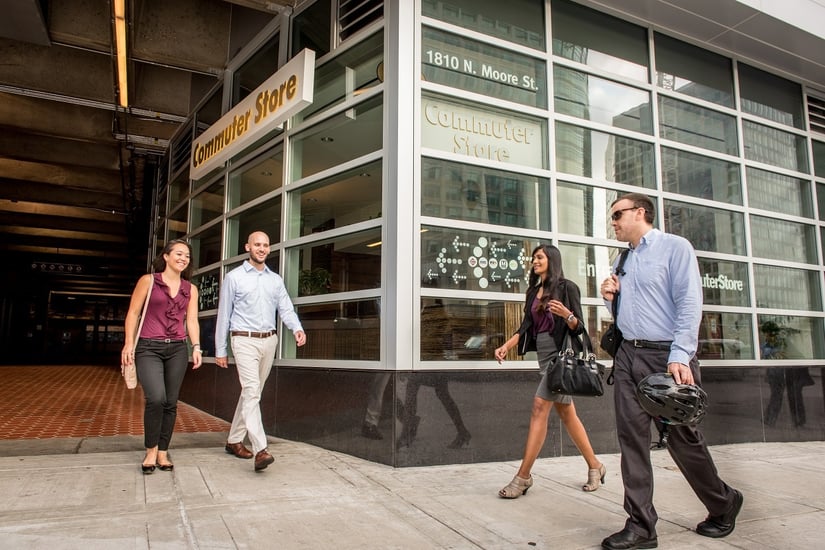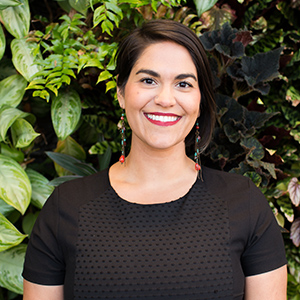When you meet someone new in the DC region, it’s pretty common to divulge where you’re from and what you do within the first five minutes of conversation. Typically, after I give my little elevator pitch and we discuss the merits of Transportation Demand Management (TDM), there is usually a question surrounding my personal transportation options. At that point, I tell the audience I sold my car in May 2015. I go into how I moved into the city, the stress behind ownership for me and then I try to put it into perspective by saying, “Parking in my building alone is $160 per month. I don’t even use $160 on Uber per month.”
I get the nods and the affirmation and then we change the subject to something far superior, like cats.
I was fine with all of this – the convo, the cats, the anecdotes around car ownership – until last week, when I listened to a presentation on the cost analysis of carshare vs private car ownership in Arlington County. The outcomes were very much what I expected, but I wondered – what was MY true cost of going car free?

Do the Math
So I did some sleuthing, I did some Math and I put together the total and average monthly cost of my own transportation fees over the last four months (January 1 through April 30). Since it’s been a solid two years since I owned a car, I used the data put together from the carshare study and chose a car on the chart (2012 Honda Civic) that was similar to my own back in the day.
I tallied all the annual fees and added a $100 per month parking fee to the cost since it wasn’t included in the study. This is primarily since most multi-family communities do charge for parking; however, I chose a figure on the conservative side.
Mode & Money Breakdown
What you see below is a breakdown of the overall costs I incurred from January to April 2017, including any annual membership fees. I have also marked modes that are covered under my employer benefits, intending to show the monetary value for employees and the satisfaction value for employers.
I also included three car ownership scenarios in the infogram below to provide full disclosure of my own pre/post car ownership life.
- $518.54 – representing most car owners in the area, includes monthly payment; 10,000 VMT traveled per year; monthly parking fee
- $257.51 – my old car ownership situation, with no monthly payment and no parking fee.
- $443.31* – my old car ownership PLUS modes I used while still owning a car (personal bike, car2go, Uber), with employer benefits applied
*Important to note: The third scenario ASSUMES I’d have similar usage patterns for car2go and Uber, even though I owned a car. I excluded Zipcar from this total as I would have used my own car instead. This isn’t very accurate given my Uber usage would likely be different with a car and if I still lived in Arlington, but I thought it important to show that even with a car, I would have still used other modes as I think is common. I fully realize this number is kind of a moving target and maybe to be taken with a grain of salt.
The full mode and money breakdown is below, but the quick takeaway is that car free residents (if they had similar usage patterns as me) can save upwards of $289 per month ($3,458 per year). For me, the variance wasn’t as great but only because of two major money factors – the car I owned was gifted to me (no monthly loan payments), the building I used to live at in Arlington didn’t charge for parking. If I had kept my car moving into the city, the monthly fee of $257.51 would have increased by $160 at least – not including any other price differences in insurance, parking permits, property tax and the list goes on.
What I Learned
For most people, there are typically significant savings around going car free; however, my car free decision hinged on the stress factor of having and maintaining a car. I still get the shudders when I walk past a car with a boot or see a stack of tickets on the windshield. I was a great driver with an impeccable record (hi mom, in case you’re reading this), but I was still easily stressed by owning a car.
And since I decided to move into the District in 2015, the choice to sell my car was definitely a smart financial decision in saving money.
Do I miss it? Nope. Not a bit.
Would I recommend it to others? Yep! In a heartbeat.
Do I realize that even if you have all the transit in the world at your fingertips that it’s still actually hard to give up your car? Yes, absolutely. It’s a symbol of American freedom.
Do I get that a car free lifestyle isn’t for everyone? For sure. I’m not an animal.
We’re all just out there living our lives and as an old colleague used to say, “You do you, boo boo.” But I hope that if you made it this far in the blog that you might stop to think about two things.
- Do your own math and determine if owning a car is really your best financial option.
- If you’re considering a second car or have a second car, check out the carshare study from Arlington County. The study states that a carshare membership (particularly for two car households) can offer considerable savings for Arlington residents.
Oh and I also learned, I should probably take Uber a lot less. Now, about those cats...
Photo Credit: Sam Kittner/Kittner.com for Arlington Transportation Partners

